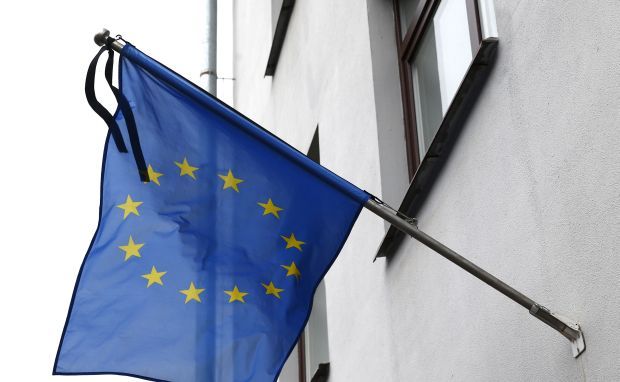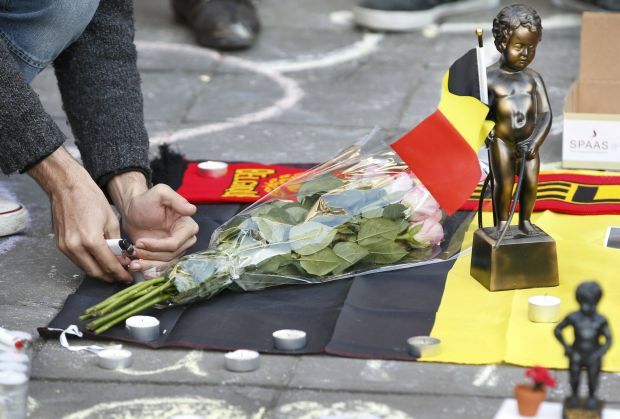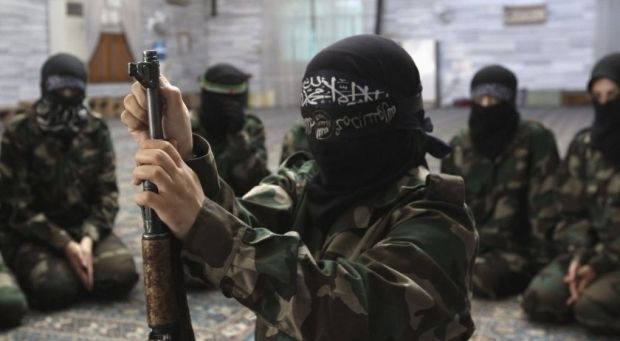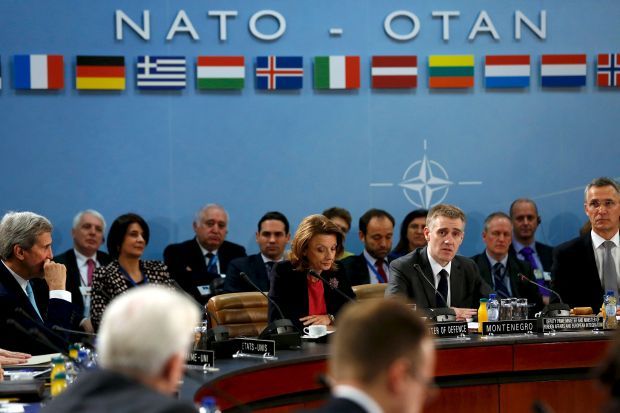
Europe's Black Spring
There was plenty of talk regarding a possibility of terrorist attacks similar to those in Paris to repeat in other major European cities. On March 22, the terrorists targeted Brussels. UNIAN has discussed with experts the possible reasons behind the new outbreak of violence in the heart of Europe and its implications for Ukraine.
The blasts at the airport and in the subway in Brussels, which killed nearly three dozen people and injured hundreds, have literally shocked the Old World. They also proved that a 100% security cannot be ensured, even in the very heart of Europe, just two steps away from EU Headquarters.
The global problem is that terrorism is a phenomenon that has always been there, throughout historical development of mankind. Over the years, terrorism has only been transforming, with the new "actors" coming out at the spotlight. "If earlier, it was leftist Marxists, relatively speaking, who committed acts of terrorism, now it’s religious radicals. Consequently, religious fundamentalism and messianic terrorism are the new big thing. They don’t have the ultimate goal. It’s terror for the sake of terror. This situation is much more complex, and this is what actually distinguishes this stage from the previous ones. Besides this, there is nothing new under the sun," says Director of the Center for Middle East Studies Ihor Semivolos.
In this regard, when it comes to dealing with terrorists, we can only try minimizing terrorist threats. But it’s highly unlikely that the attacks can be eliminated completely. Firstly, because the timeframe between the terrorists’ decision-making and carrying out attacks is extremely narrow. Secondly, that’s because terrorism mutating faster than the security systems aimed at countering it.
In particular, Semivolos believes the March 22 attacks could be prevented, or at least the risks could be minimized. "A few days before the attacks, the security services in Brussels arrested in a raid the suspect of Paris attack. In such a situation, analysts were supposed to assess the situation and raise the threat level, to get prepared. But they failed to do it," he said.

Indeed, the intelligence services couldn’t have been unaware that something was plotted by terrorists. There is a high probability that regular arrests of suspected terrorists or their allies suggest: law enforcement agencies had both the data from interrogations and relevant human intelligence.
The expert is positive that, as of today, there are two methods to counter terrorist acts. The first is to strengthen security measures. On the other hand, this would complicate lives of ordinary citizens, while such measures, including restricting access to public events, are only to some extent an obstacle for terrorists. The second method is for security services to penetrate terrorist organizations. But, unfortunately, this work can’t always be successful, given the nature of religious terrorism and religious movements despite the complexity of such special operations.
ISIL vs the Old World
Today’s face of global terrorism is a so-called Islamic State organization, which claimed responsibility for a whole series of terrorist attacks across the globe. According to experts, the organization aims at topping global agenda and remaining the one to make the news, in order to show its power and therefore attract new members, according to political analyst on international affairs Taras Chornovil. “By focusing its attacks on Europe, ISIL displays a factor of personal revenge to the West for its engagement in Iraq and Syria. It also underlines rejection of Western values and puts forward fear as an opposition to these values."
According to former Consul General of Ukraine in Istanbul and Edinburgh Bohdan Yaremenko, terrorism is becoming an increasingly popular form of delivering certain messages and struggle, including political one, between various groups. The expert believes in particular that at the basis of terrorism lie the uneven distribution of wealth and development of different regions.
In turn, political scientist, Director of the Institute of Global Strategies Vadym Karasyov notes that ISIL is forming its terrorist underground in Europe instead of setting up a separate terrorist state, as their "Caliphate" is now under attack and its territory has been shrinking lately, while the terrorists continue to retreat.

"It is difficult to assess the work of the Belgian intelligence services, but just a couple of days before the series of terrorist attacks, there was a successful raid in Brussels when one of the suspects in organizing Paris attacks. Most likely, he was not just a terrorist. Behind him there may have been a whole terrorist network," says co-director of foreign policy and international security programs at Razumkov Center Oleksiy Melnyk.
According to the expert, the Brussels attack on March 22 could as well have been masterminded by the arrested Saleh Abdeslam, so his allies have simply acted according to the plan earlier approved. In general, the incident indicates that the problem is much deeper and wider. "It is possible that there are dozens or hundreds of similar terrorist cells across Europe. And this indicates that serious resources and investments in security are needed to tackle this serious problem, in order to minimize the threat," says Melnyk.
The world needs rules and principles to be followed
However, according to Melnyk, one should not draw hasty conclusions about the lack of a functioning security system that could withstand the terrorist threat in Europe. The fact is that the security system is evolving constantly. And it is hardly possible to say today that the situation is now much worse than it was twenty or fifty years ago. But, nevertheless, each of such acts of terror, as in Paris or Brussels, makes us wonder, how effective the security services are and what needs to be done to minimize the likelihood of such incidents.
"Here, at least at the level of rhetoric, there is understanding that investment in European security was in fact insufficient. And we may expect that some kind of decision on the increase in funding of special services will be drafted in the near future, as well as on the improvement of coordination and intelligence sharing system. This is an obvious need, and this decision is probably most anticipated," assured Melnyk.
Actually, due to the new threats, certain transformation of NATO’s collective security system shouldn’t be ruled out either. "I think that at the NATO summit in Warsaw this summer, we will get the answers to a series of questions: What will change in the system of collective security (this applies, above all, to military security issues). Though, probably, there will be a more comprehensive approach, including toward security against terrorist threats and cyber security. But NATO was created to counter military threats. And it is unlikely that the Alliance will be a key tool to combat terrorist threats. It is primarily the task of the national intelligence services and police. It’s also about better coordination in multilateral and in bilateral formats," he says.

Thus, Oleksiy Melnyk is convinced that the world today does not need a new collective security system, but it rather needs the key players, Russia in the first place, to abide by the rules that have already been established and have proven to be effective for many decades of the Cold War and after it ended. "That is, it’s about respecting the fundamental rules and principles. Since these attacks are also associated with the destruction of the existing security system based on international agreements, as well as with the fall of the level of trust between the countries," he said.
Fear instead of freedom
In turn, Vadym Karasyov is convinced that the terrorist attacks in the capital of Belgium are anything but accidental. They carry a certain message - a blow to the European project and the Atlantic community as such. In other words, after the Brussels attacks, the mediocre European citizens ask themselves a natural question: if even such cities as Brussels and Paris have become unsafe places, what about the minor ones? "It can cause a serious blow to Europe's attractiveness and strengthen anti-immigrant sentiment within the EU. Of course, far-right and populist parties won’t lose their chance to take advantage of this situation," says the analyst.
Taras Chornovil shares this view, saying that anxiety and panic over the possibility of terrorist attacks repeating in other European cities will trigger the growth of Euro-skepticism, which may lead to the destruction of the Schengen zone.
Political expert and director of the Center for Civil Society Studies Vitaliy Kulik also said that the aim of such attacks is to frighten the Europeans and get them to perform certain steps. "I don’t rule out that the attacks in Brussels are a certain type of hybrid war directed by Russia against the EU", - he said.
Roughly speaking, this is for Europe to become more accommodating on other issues. And by the way, Russia’s top officials were united in voicing similar messages [on the need for Europe to cooperate with Russia] following the attacks.
One should also not rule out that, after the bloody events in Brussels, the EU can slow down or even postpone the implementation of a visa-free regime for Ukraine, instead starting a major program to curtail visa liberalization projects. In addition, the terrorist threat is also persistent in Ukraine, a country that seeks to join the European community. By far, Ukraine is not among the states whom ISIL chose to fight. And those who are capable of creating any terrorist threat in Ukraine are not yet suicide bombers. However, we should beware of terrorist threats that come, in particular, from the pro-Russian subversive groups...
Kostyantyn Honcharov, Tetiana Stezhar

